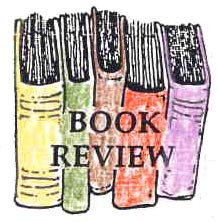|

This story was published in Radio Recall, the journal of the Metropolitan Washington Old-Time Radio Club, published six times per year.
Click here to return to the index of selected articles.
|
|
 Remembering Radio: Remembering Radio:
An Oral History of Old-Time Radio
By David S. Siegel
Transcribed by Melanie Aultman
Foreword by J. David Goldin
Published by BearManor Media
PO Box 71426
Albany, GA 31708
www.bearmanormedia.com
411 pages, $24.95
Reviewed by Michael J. Hayde
(From Radio Recall, October 2010)
Since the rise of old-time radio as a hobby for collectors and enthusiasts in the 1970’s, one of the most valuable resources has been the recollections of those who lived the era. Interviews with the participants of OTR favorites have always been a staple of both latter-day radio programs devoted to the old broadcasts, as well as conventions from coast-to-coast. Educational and cultural institutions have also seen fit to document the first-hand memories of those who were there.
And so, from the personal archives of David S. Siegel, comes this breezy and enjoyable collection of interviews with fifteen OTR personalities: actors Parker “Titus Moody” Fennelly, Frank Nelson and his wife Veola Vonn, Pat Hosely and Miriam Wolff; Vocalists Hildegarde, Anne DeMarco (third of the five DeMarco Sisters), Joan Merrill, Peggy Moylan and Mary Small; writer Sandra Michael (Against the Storm, Lone Journey); Producer Ward Byron (Carefree Carnival, Chesterfield Supper Club); Twenty Questions panelist Robert Vanderventer; and two family members: Janet Gari, daughter of Eddie Cantor, and Dorothea Cole, wife of writer Alonzo Deen Cole (Casey, Crime Photographer, The Witch’s Tale).
As is always the case when dealing with personalities, some folks are more forthcoming than others. Parker Fennelly – much like the terse, crusty New Englander he portrayed on The Fred Allen Show – had very little to say about his early years when questioned by Mr. Siegel; it was up to Fennelly’s wife Catherine to prompt him for anecdotes. By contrast, the vocalists were apparently all delighted to share their memories of working on the radio.
Mr. Siegel’s interview style was very informal, and consequently the interviews are very conversational. MWOTRC member Melanie Aultman handled the transcribing of Mr. Siegel’s audio tapes and only left out mentions of addresses and telephone numbers, even including exchanges of personal matters such as dinner invitations and such. This might prove superfluous and possibly bothersome for the serious scholar, but for the average OTR fan it adds to the charm of the people involved.
The scholar, however, will be delighted with the second part of Remembering Radio, which is the Resource Guide to the Oral History of the Golden Age of Radio. Here, Mr. Siegel has listed the names of over 990 old-time radio participants that were interviewed by 13 primary resources over the last thirty-some years. The list is coded by the type(s) of work each interview subject did during the OTR era, and some of the more prominent names were interviewed more than once.
All told, Remembering Radio is a delightfully informative book that covers a wide spectrum of radio’s golden age. If the names of several of Mr. Siegel’s subjects are unfamiliar to all but the most rabid hobbyist, their memories are no less valuable or entertaining than those of the medium’s leading lights. In any case, it’s a worthy addition to anyone’s OTR library.
|